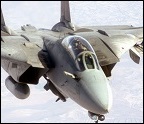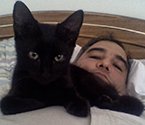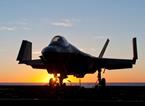djoos5
Posts: 382
Joined: 10/25/2013
From: Ohio
Status: offline

|
US-Allies versus European Confederation
Date/Time: 20th July 1998
Location: North Sea and northern Europe
Playable Sides: United States-Allies

COMMENTARY, ABC NEWS
"Poverty. Despair. Rising ethnic and national hatreds. Fear. This is Europe today. A Europe in shambles, bleak, bitter, and adrift. A divided continent where old and dangerous ambitions the world thought safely buried are on the march again." Pictures tell the story - national flags of different designs and colors wave above a dozen different, strutting crowds in a dozen interwoven news clips. "When we won the cold war against communism, the world's democracies had a fleeting opportunity to secure a lasting peace founded on free trade and prosperity. We did not lose the historic opening by chance or simple bad luck. We threw it away."
It has been close to ten years since the Berlin Wall came down and Western Europe was once more unified with its eastern neighbors. The joy of the moment and the opportunities that came were fleeting as petty governments, racial and religious tensions, and poverty began to plague the newly independent countries. Economies broke down from Lithuania to Greece and fighting sprung up anew due to long held rivalries. It seemed that Europe would once more know a dark time.
But strength lay within the industrial giants – France and Germany. Their corporations stretched across the breadth of Europe and provided people with jobs. In Hungary, the French manufacturer, Eurocopter, kept many on the lines, which helped keep the peace. It was the same for many other companies, French and German alike.
With the economic might came the inevitable enticement of power and the French President made a play. If Europe could be unified, and the industrial might of France and Germany could be combined, it would create a new era of European prosperity - one which France would lead.
Diplomats from France departed for their powerful neighbor and soon the European Confederation, also known as EurCon, was created. Seeing the opportunity for jobs and to take care of their peoples’ needs, the smaller eastern nations fell into line. Only Poland declined the invitation to join, much to the French – now EurCon – President’s dislike. Germany’s large neighbor had resources and harborage that would aid in the new union’s growth. It was decided that economic sanctions and other financial restrictions would be placed on Poland, from the new confederacy, in hopes to break their will and bring them under EurCon’s umbrella.
It didn’t work. Instead, the people in Hungary and Czechoslovakia, after finding that to be part of EurCon meant you were vassals to the new kings – the people being worked hard in the French and German facilities – looked to their northern neighbor and wondered at their decision.
The charters that they had signed created legal challenges for the smaller countries to change their membership within the union, but the citizenry began to rise. Groups and unions formed demanding lighter workloads and better living conditions. It was only a matter of time before the EurCon President ordered troops to be moved into the smaller nations to quell the riots. Once more, the small nations of Eastern Europe felt the boot at their throat – this time from a new master. Or was it an old master, for it was troops from the once German Army that were moved into the region. It had an ill effect.
The French President knew that it was Poland, by defying the invitation to join EurCon, that was creating the unease in the rest of the eastern bloc. He decided it was time for more drastic measures. An agreement was made with Russia to cease all transfer of natural gas into Poland. The Baltic was closed so that no food or other commodities could reach Polish ports. Winter was coming and in no time, a humanitarian crisis was created in the heart of Europe.
The Poles had no choice. They sent diplomats to the United States and England to ask for aid. At the same time, they increased the readiness of their military. After the evidence was presented, the United States agreed to move an air wing to Poland for training exercises. Also, huge natural gas ships were sent from England and the US to provide the necessary fuel to keep the Poles from freezing in the upcoming winter.
With over thirty LNG tankers sitting in Gdansk, German SpecOP teams took to the sea in small boats laden with magnetic mines. The special force's divers swam under the large tankers and planted their explosives. The task done, the teams departed the area and it was then only a matter of time.
Gdansk lit up with the brilliance of many ships exploding – the deafening roar shattering windows in the city. With the one cruel blow, Europe was once more cast into war.
Note
This scenario provides multiple action groups and units for the player - save for aircraft loadouts, players will need to set up all actions for the Allied side.
 Attachment (1) Attachment (1)
< Message edited by djoos5 -- 5/13/2016 8:39:06 PM >
_____________________________
|
 Printable Version
Printable Version















 New Messages
New Messages No New Messages
No New Messages Hot Topic w/ New Messages
Hot Topic w/ New Messages Hot Topic w/o New Messages
Hot Topic w/o New Messages Locked w/ New Messages
Locked w/ New Messages Locked w/o New Messages
Locked w/o New Messages Post New Thread
Post New Thread